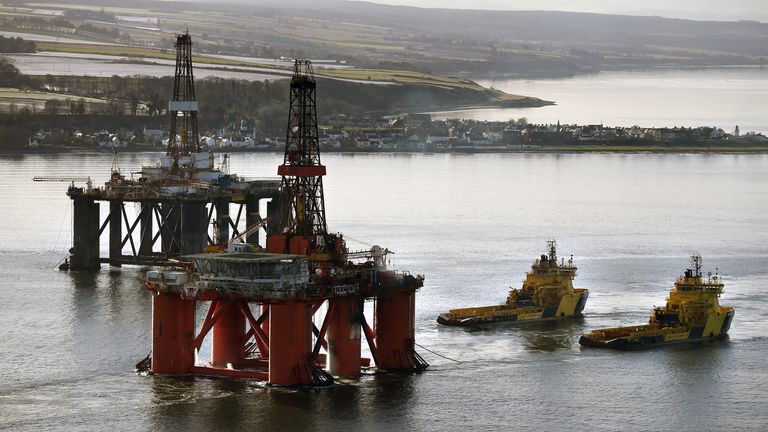The price of petrol in the UK could soon rise further after the cost of oil jumped to its highest level this year.
Brent crude climbed to more than $91 (£72) a barrel on Tuesday afternoon, a price not seen in the market since November 2022. It later fell back slightly by the evening to hover at around $90.
It came after Saudi Arabia and Russia unexpectedly announced they would extend voluntary oil production cuts until the end of this year, trimming an estimated 1.5 million barrels a day out of the global market.
Investors had thought the squeeze on supplies would only last until October and were “caught off guard” by the move, John Kilduff from Again Capital said.
Read more:
Why are fuel prices on the rise and will they come down?
Both countries insisted the extension would help support the “stability and balance of oil markets” and said they would review the decision each month.
But commentators warned it would likely result in higher prices at the pumps – and help fuel inflation.
Petrol prices have come under renewed focus in the UK after regulator the Competition and Markets Authority criticised retailers following a review earlier this summer.
But despite the heightened scrutiny, rising wholesale prices had led to prices creeping up.
The cost of unleaded has increased by almost 7p a litre in the last month, while diesel has gone up by 8p, according to the latest figures from the RAC.
Read more business news:
Wilko store closures and 1,300 more job losses confirmed
Why September will be a momentous month for US industry
Birmingham City Council effectively declares bankruptcy
Rod Dennis, an RAC spokesman, said: “Drivers had already seen a sharp increase in pump prices through the course of August as a result of the oil price rising.
“An even higher oil price is likely to force wholesale fuel prices up further, and – if these are sustained – that’s likely to spell further price rises on forecourts up and down the UK in the coming weeks.”
The dual announcements from Saudi Arabia and Russia also risk raising tensions between Riyadh and the White House.
US President Joe Biden last year warned his Middle East ally there would be “consequences” for partnering with Russia on oil cuts amid Moscow’s ongoing war with Ukraine.
Since last October, the cost of Brent crude has largely ranged between $75 (£60) and $85 (£68) a barrel.
But UBS now forecasts it could rise to $95 (£76) a barrel by the end of the year.
Higher oil prices can have a knock-on effect of increasing transportation costs – and ultimately push up the price of goods.
Any hikes in petrol are also set to be reflected in the next set of inflation figures, putting further pressure on the government over its pledge to halve the rate by the end of this year.

